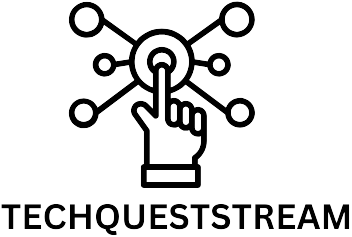In a world where technology evolves faster than a cat meme goes viral, understanding emerging and foundational technologies is crucial. These innovations aren’t just buzzwords tossed around at tech conferences; they’re the building blocks of our future. From artificial intelligence to blockchain, these technologies are reshaping industries and redefining how we live and work.
Imagine a world where your coffee brews itself while your smart fridge orders groceries based on your mood. Sounds like a sci-fi flick, right? But with the right mix of emerging technologies, this could be tomorrow’s reality. By diving into the fascinating realm of these tech advancements, readers will discover how they can leverage these tools to stay ahead of the curve. So grab your virtual goggles and prepare for a journey into the tech landscape that’s not just exciting but essential for anyone looking to thrive in the digital age.
Table of Contents
ToggleOverview of Emerging and Foundational Technologies
Emerging technologies encompass innovative advancements that significantly impact industries and everyday life. Technologies such as artificial intelligence (AI), blockchain, and quantum computing represent the forefront of this transformation. AI enhances decision-making processes and automates tasks across sectors. Blockchain facilitates secure transactions and improves transparency in various applications.
Foundational technologies serve as the backbone supporting these innovations. Data analytics, cloud computing, and the Internet of Things (IoT) provide essential infrastructure. Data analytics enable businesses to derive insights from large datasets. Cloud computing offers scalable resources for storage and processing. IoT connects devices, allowing seamless communication and data exchange.
Security remains a critical aspect in the adoption of these technologies. With increasing digital interactions, cybersecurity measures must adapt. Organizations must prioritize secure systems to protect sensitive information and maintain trust. Regulations and standards are necessary for governance and accountability.
Collaboration fosters further advancements in technology. Partnerships between academia, industry, and government stimulate research and development. These collaborations drive innovation and create solutions to complex challenges. Other sectors, like healthcare and finance, increasingly rely on technology for better outcomes.
Understanding this landscape equips individuals and businesses to stay competitive. Knowledge of emerging and foundational technologies empowers proactive engagement in technology adoption. Embracing these advancements is essential for thriving in an ever-evolving digital environment.
Importance of Emerging and Foundational Technologies

Emerging and foundational technologies play a crucial role in shaping the future. They drive innovation across various sectors, enhancing efficiency and productivity.
Impact on Industries
Industries increasingly rely on technologies like artificial intelligence and blockchain to optimize operations. Manufacturing benefits from automation and predictive analytics, which streamline processes. Healthcare sees advancements in patient management through data-driven insights and telemedicine. Retail adapts to consumer preferences with personalized marketing enabled by data analytics. Financial services leverage blockchain for secure transactions, improving trust and transparency. Supply chains enhance visibility through IoT, allowing real-time tracking of goods.
Future Prospects
Future prospects for emerging technologies appear promising, indicating rapid advancement. Integration of AI with quantum computing could revolutionize problem-solving capabilities. Expansion of 5G networks fosters connectivity, enabling smart cities and autonomous vehicles. Advancements in cybersecurity technologies are essential, considering the rising threats linked to digitalization. Organizations will likely invest in foundational technologies that support sustainable practices and data integrity. Adaptation to these innovations will be fundamental for competitiveness in the evolving landscape.
Notable Examples of Emerging Technologies
Emerging technologies continue to reshape industries and enhance daily life. Their significance grows as innovation accelerates.
Artificial Intelligence
Artificial intelligence (AI) transforms operations across sectors. Applications span from automated customer support to advanced data analysis. Sophisticated algorithms provide insights that empower decision-making. AI enhances efficiency in manufacturing by streamlining processes and reducing downtime. Personalized experiences in retail arise from AI’s ability to analyze consumer behavior. Continuous advancement promises more sophisticated solutions, solidifying AI’s role in the future of technology.
Blockchain Technology
Blockchain technology promotes transparency and security in transactions. This decentralized ledger system minimizes fraud risk and enhances trust between parties. Industries like finance and supply chain management embrace blockchain for real-time tracking and verification of data. Smart contracts automate agreements, reducing the need for intermediaries. Adoption spreads as businesses recognize blockchain’s potential to streamline operations and improve accountability.
Quantum Computing
Quantum computing represents a significant leap in processing power. Traditional computers face limitations that quantum technologies aim to overcome. They perform complex calculations exponentially faster, benefiting fields such as cryptography and drug discovery. Researchers explore applications that could revolutionize problem-solving and data analysis. As advancements unfold, quantum computing is positioned to redefine how industries tackle previously insurmountable challenges.
Challenges in Implementing Foundational Technologies
Implementing foundational technologies presents various challenges that organizations must navigate effectively.
Technical Barriers
Technical barriers significantly affect the deployment of foundational technologies. Legacy systems often hinder integration, as outdated infrastructure lacks compatibility with newer technologies. Organizations face high costs when upgrading equipment or transitioning to cloud-based solutions. Additionally, a shortage of skilled professionals poses a challenge; many employees require training in data analytics or IoT systems. Compatibility issues between various technologies can complicate implementation efforts. Security concerns regularly surface, particularly regarding data protection and privacy regulations that organizations must comply with. Addressing these technical barriers remains critical for successful technology adoption.
Ethical Considerations
Ethical considerations play an essential role in the adoption of foundational technologies. Privacy concerns arise as organizations collect and process vast amounts of data. Organizations must establish protocols to protect personal information and ensure transparency in how data is used. The potential for biased algorithms also requires attention; developers need to implement measures that promote fairness and equality in technology applications. Social implications are vital, as displacing jobs with automation might adversely affect communities. Ethical frameworks are necessary to guide decision-making and promote responsible usage of technology, ensuring that innovations serve the greater good.
Strategies for Integrating Emerging and Foundational Technologies
Integrating emerging and foundational technologies requires strategic planning and implementation. Effective approaches focus on training, education, and collaboration.
Training and Education
Training programs play a crucial role in bridging the skills gap for new technologies. Organizations can implement workshops and seminars to enhance employees’ technical abilities. Targeted courses should emphasize the importance of data analytics, cloud computing, and cybersecurity. Continuous learning opportunities help staff stay informed about advancements. Real-world scenarios during training can illustrate the practical applications of these technologies. Partnering with educational institutions fosters a pipeline of skilled workers to meet industry demands. By prioritizing employee development, organizations can ensure a capable workforce ready to embrace innovations.
Collaborative Efforts
Collaborative efforts among academia, industry, and government drive successful integration of technologies. Joint research initiatives promote innovative solutions to complex challenges. Coalitions can pool resources, knowledge, and expertise, accelerating development processes. Regular forums and conferences create platforms for sharing insights and best practices. Establishing partnerships encourages reciprocal learning and supports technological advancements. Stakeholders should prioritize open communication to align interests and goals. Through collaboration, organizations can navigate regulatory landscapes and foster a culture of innovation. These partnerships ultimately support the sustainable integration of emerging and foundational technologies into everyday operations.
Emerging and foundational technologies are reshaping the landscape of industries and daily life. As organizations adapt to these innovations they must prioritize not only technological integration but also ethical considerations and cybersecurity. The collaboration among academia, industry, and government will play a pivotal role in driving advancements and addressing challenges.
Investing in training and education will equip the workforce with the necessary skills to harness these technologies effectively. By fostering an environment of continuous learning and open communication, businesses can navigate the complexities of the digital age. Embracing these technologies isn’t just an option; it’s a necessity for staying competitive and relevant in an ever-evolving world.





